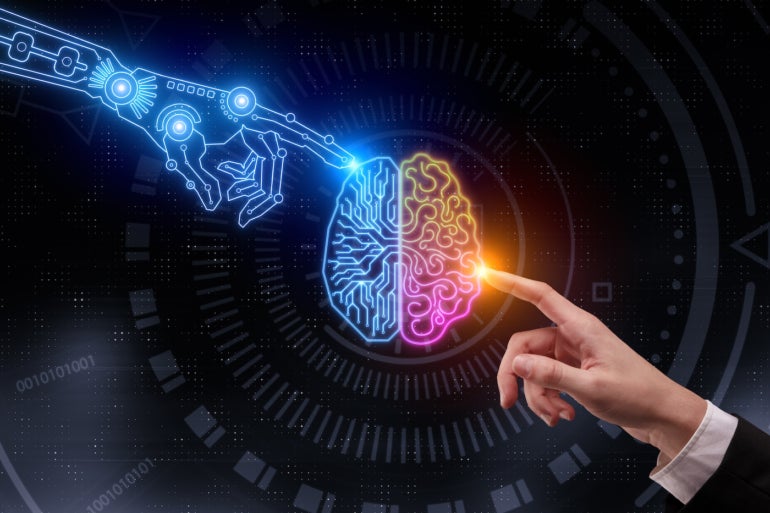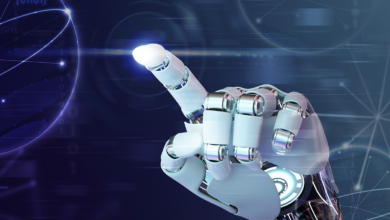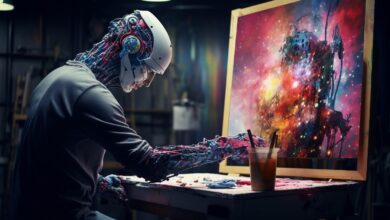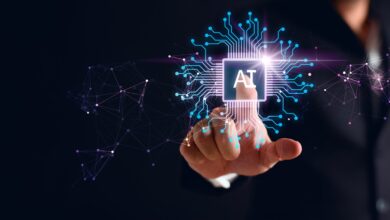5 Ways Generative AI Will Impact Culture & Society

[ad_1]

Generative AI is making waves in the tech industry, but its impact will be felt and accelerated far beyond the technology world. Generative AI comes with significant impacts across technological, political, economic, social, cultural, ethical, regulatory, legal and environmental domains.
As a key part of their strategic planning, technology leaders need to understand the full breadth and scope of the influence that generative AI may have on their organizations, as well as the profound impact of generative AI on our society and how society will impact the adoption of generative AI. This will paint a more holistic picture and enhance leaders’ strategic decision making.
Here are five areas generative AI is impacting or will impact from a social and cultural perspective that technology leaders should be considering. While this isn’t a comprehensive list, by understanding these impacts and taking proactive measures, leaders can harness the potential of generative AI while addressing its challenges.
Jump to:
Collaboration
Generative AI is poised to have a transformative impact on collaboration, revolutionizing how teams work together and with technology. By leveraging deep learning algorithms, generative AI can mimic human creativity and generate new content in various forms, such as text, speech, images, music and video.
In addition, generative AI plays a vital role in the creation of digital human assistants, which can aid in tasks such as answering queries, summarizing and producing reports, facilitating data analysis, delivering tailored suggestions and automating activities such as meeting scheduling, email management and document organization. Digital assistants learn from user interactions over time, enabling them to handle more complex tasks and freeing human workers to focus on higher-level work.
Generative AI’s impact on collaboration isn’t without challenges and potential adverse effects; this includes concerns about bias and fairness, security of user data, people’s privacy, content manipulation and integration difficulties. Organizations must address these issues responsibly through diverse and curated training data, robust data protection measures, ethical guidelines, fostering user engagement and providing adequate training and support.
Dehumanization
Generative AI shouldn’t be viewed as a replacement for human judgment but rather as a tool to enhance creativity and innovation. Gartner predicts that by 2036, the incremental spending for products, services and hybrid offerings to deliver AI solutions will exceed $50 trillion. Technology leaders should be aware of the psychology of the new diversity that will emerge as teams become composed of humans and nonhumans working together.
Technology and innovation leaders should engage in open dialogue with stakeholders to ensure that generative AI is developed and deployed in a way that optimizes their operations and processes while also demonstrating a commitment to valuing and supporting employees. While AI-based machines are fast, accurate and consistently rational, they lack the intuitive, emotional and culturally sensitive abilities that humans possess. Organizations that integrate generative AI with human input can create more personalized and authentic experiences while also preserving cultural diversity and individuality.
Social media
The integration of generative AI into social media platforms has profound implications for technology innovation leaders. Platforms such as Snapchat, Meta, YouTube and Reddit are investing in generative AI, and users are exploring it for content creation and real-time language translation.
However, the prevalence of AI-generated content raises concerns about the spread of fake information and the erosion of trust in social media platforms and digital interactions. The dissemination of misleading or manipulated content can further diminish public trust in the authenticity of information shared on social media, undermining the credibility of these platforms and media sources overall.
For technology leaders, understanding the implications of generative AI on social media is essential; it offers opportunities for enhanced user experiences, improved ad targeting and data-driven strategies. However, it also demands ethical considerations, responsible implementation and proactive measures to address challenges such as algorithmic bias, polarization, misinformation and privacy concerns.
AI natives
Although AI natives will include a generation that has grown up with AI, the starting point of that generation remains uncertain — AI has been around for decades but has simmered for a long time. We will all need to adapt to AI’s growing pervasiveness, and the term “AI natives” will be used broadly to indicate those to whom AI is second nature.
As AI systems become integrated into our daily lives, AI natives will have a natural affinity for and adeptness with AI. Their inherent familiarity will reshape communication, work preferences, socialization, entertainment and their interactions with technology. For instance, there’s a potential decrease in critical thinking and problem-solving abilities as AI natives heavily depend on AI for information and decision making, diminishing their need to analyze situations independently.
SEE: Hiring kit: Prompt engineer (TechRepublic Premium)
The arrival of AI natives will bring new expectations to the workforce, much as digital natives did. AI natives will entrust AI systems with tasks and rely on them, viewing this as a competitive requirement. Blurring boundaries between human- and AI-created content will be commonplace, and the reliance on generative AI tools will shape their long-term thinking. Moreover, the widespread adoption of AI will give rise to new job opportunities and necessitate re-evaluating the conventional notion of jobs, demanding a more flexible and adaptable skill set.
Adapting to the demands of AI natives and embracing continuous reinvention will be essential for technology leaders to consider in their long-term strategies.
Visual and performing arts
Until recently, creativity and art were the exclusive domain of humans. Generative AI challenges that by democratizing the creation of art, offering new artistic frontiers while disrupting traditional installations.
For instance, with the help of AI-generated algorithms, musicians are exploring new sounds and styles; performers are creating interactive and immersive performances; and screenplay writers are generating new scripts. These disruptions could lead to new business models and revenue streams for artists and entities that utilize generative AI for creating, distributing and monetizing artwork.
Simultaneously, AI is creating legal and ethical considerations around authorship, copyright, ownership and authenticity. Technology leaders must work with their legal and regulatory teams to ensure their organizations are managing the risks of AI-generated works of art and graphic design.

Issa Kerremans is a Principal Analyst at Gartner, Inc. researching artificial intelligence and digital transformation, specializing in generative AI, process mining, task mining and digital twin of an organization (DTO).
[ad_2]
Source Credit




